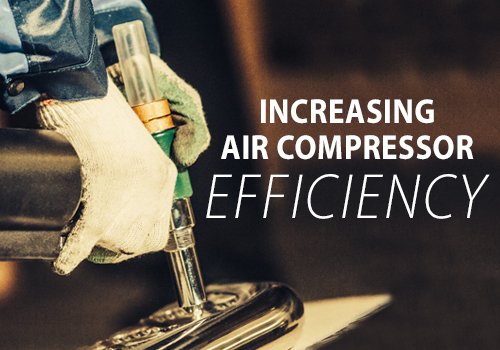The key to optimal air compressor efficiency is to maintain the integrity of your entire pneumatic system. This includes the air compressor, fittings, air hose, and tools. An efficient pneumatic system will ensure that you’re getting the air you need when you need it. An inefficient one will cost you time and money. So, here are 5 steps that will make sure your pneumatic system keeps operating the way it was intended to.
- Use 3/8-inch Air Hose: Whenever possible, use a 3/8-inch air hose to ensure you get the maximum amount of pressure to the tool. While a 1/4-inch air hose is lighter to work with, its smaller diameter restricts airflow and causes a greater degree of frictional loss. As a thumb rule, opting for a larger diameter hose ensures the maximum amount of pressure to the tool.
- Use Shorter Lengths of Air Hose: The longer the distance air has to travel, the greater is the loss of pressure. For the maximum amount of pressure, use shorter lengths of air hose wherever possible. This, however, may not be possible in certain unavoidable situations, and in that case, using an auxiliary tank can come to your rescue.
- Use an Auxiliary Tank: An auxiliary tank acts as a reservoir of extra air and allows a user to maximize the distance between the compressor and the tool. It also helps minimize frictional loss.
- Lubricate your Pneumatic Tools Regularly: Using lubricants on movable parts can reduce friction and achieve greater levels of efficiency. It is important to consider the frequency of lubrication as well as the type of lubricant being used in the tools. For tools that are used daily, 4-5 drops at the start of each shift, is the norm. Using the wrong type of lubricant can damage the O-rings and other critical components.
- Check the System for Leaks: This can be done simply by allowing the compressor to build top pressure with the air hose and other components connected. Once the compressor has stopped pumping, watch the tank pressure gauge and listen carefully for any hissing noise. If the needle of the pressure gauge drops continuously, it indicates a leak. If on the other hand, it stays put and there is no hissing noise, the system is completely leak-free. Leaks in the system can cause excessive running of the compressor, leading to early wear and tear. A leak can be detected by spraying soap water on the hose and other components and looking for the formation of bubbles.

For assistance to decide on the air compressor that suits your needs the best, feel free to contact us on +919819907445. We would be happy to assist you in finding the best match based on your requirements. As one of the leading ELGi air compressor dealers, VEMC provides seamless services to its clients. VEMC is ISO 9001:2015 certified and is a pioneer in the field of electromechanical engineering products, allied equipment, and services.

